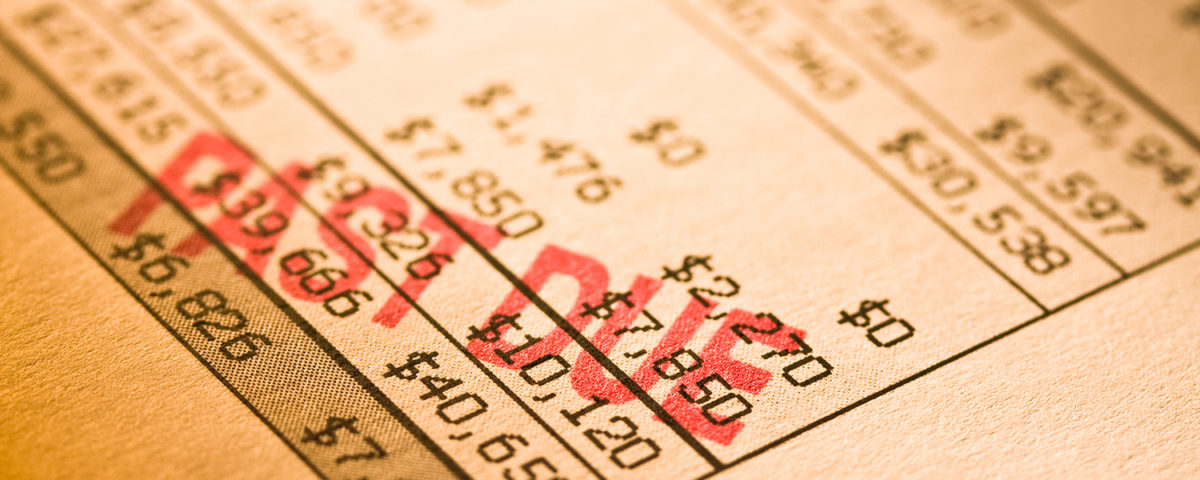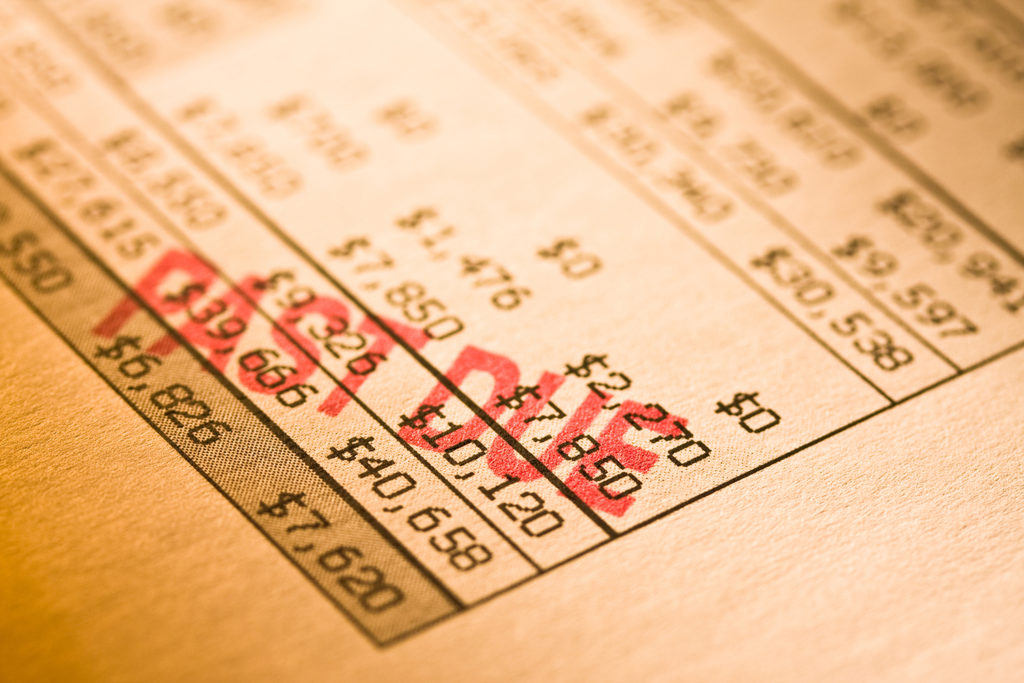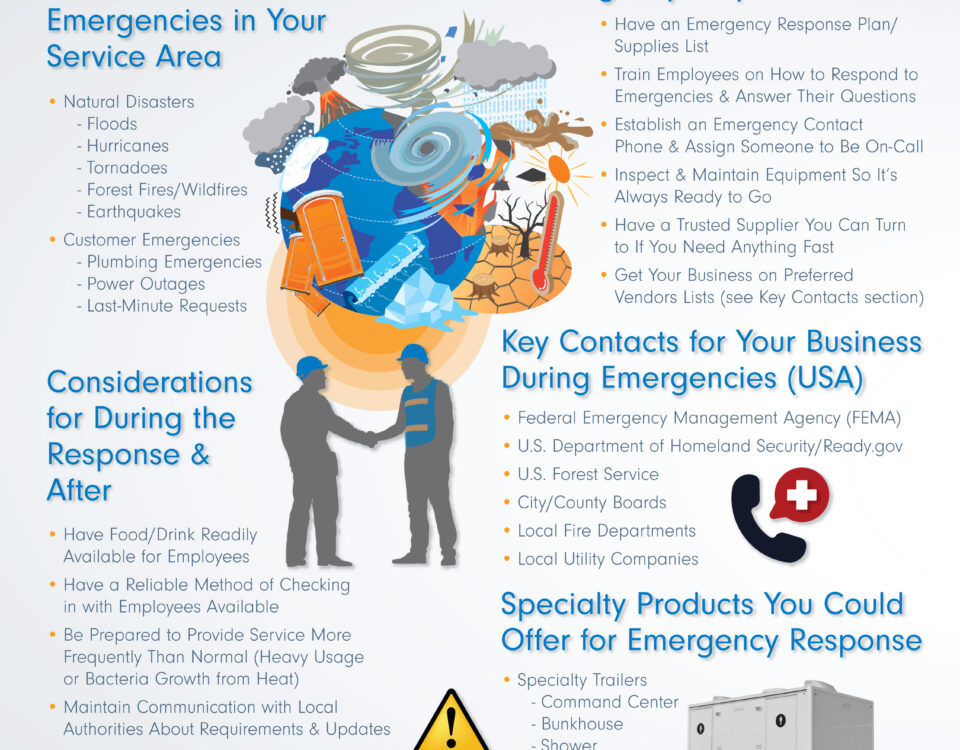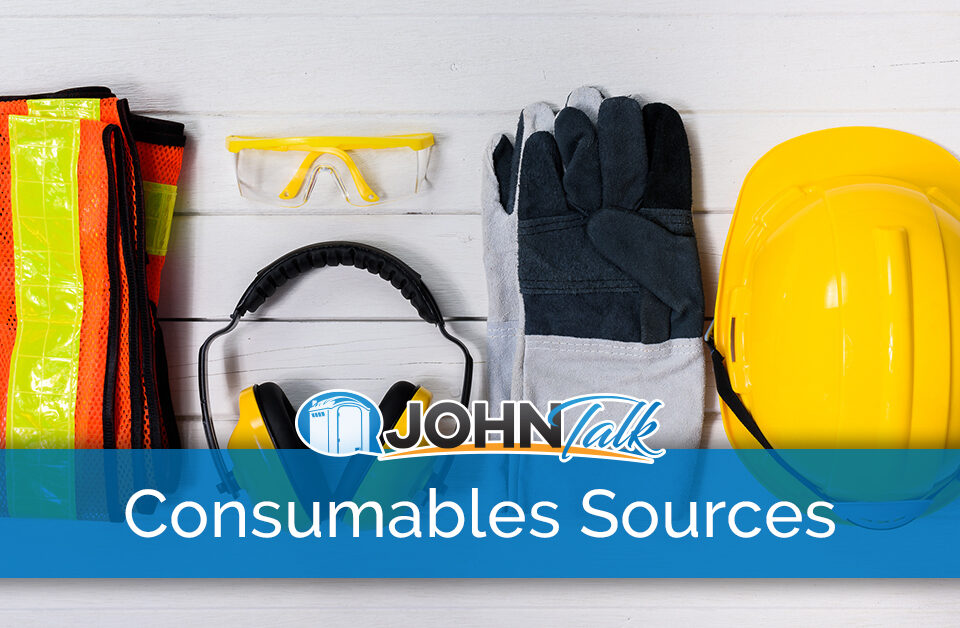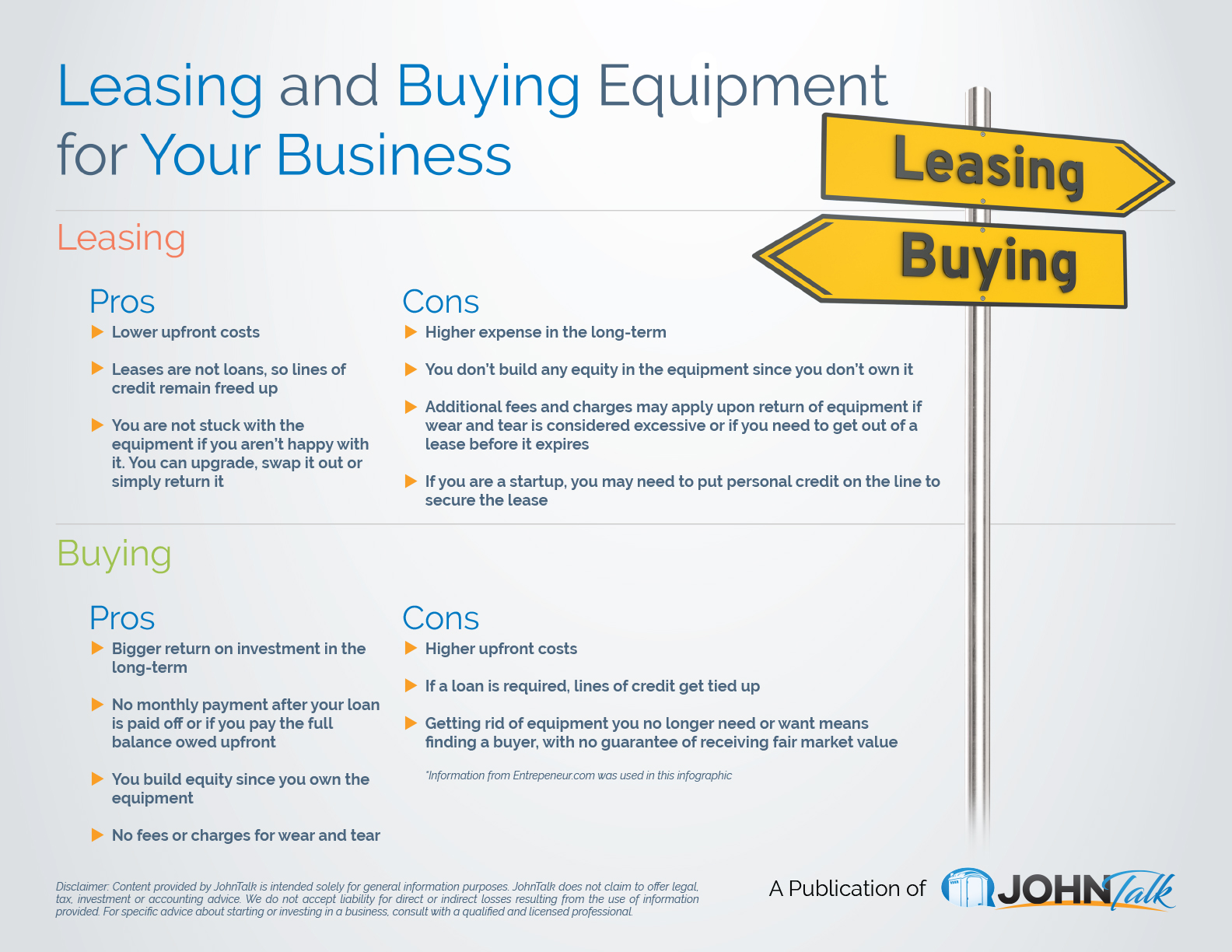
INFOGRAPHIC: Leasing and Buying Equipment for Your Business
April 9, 2018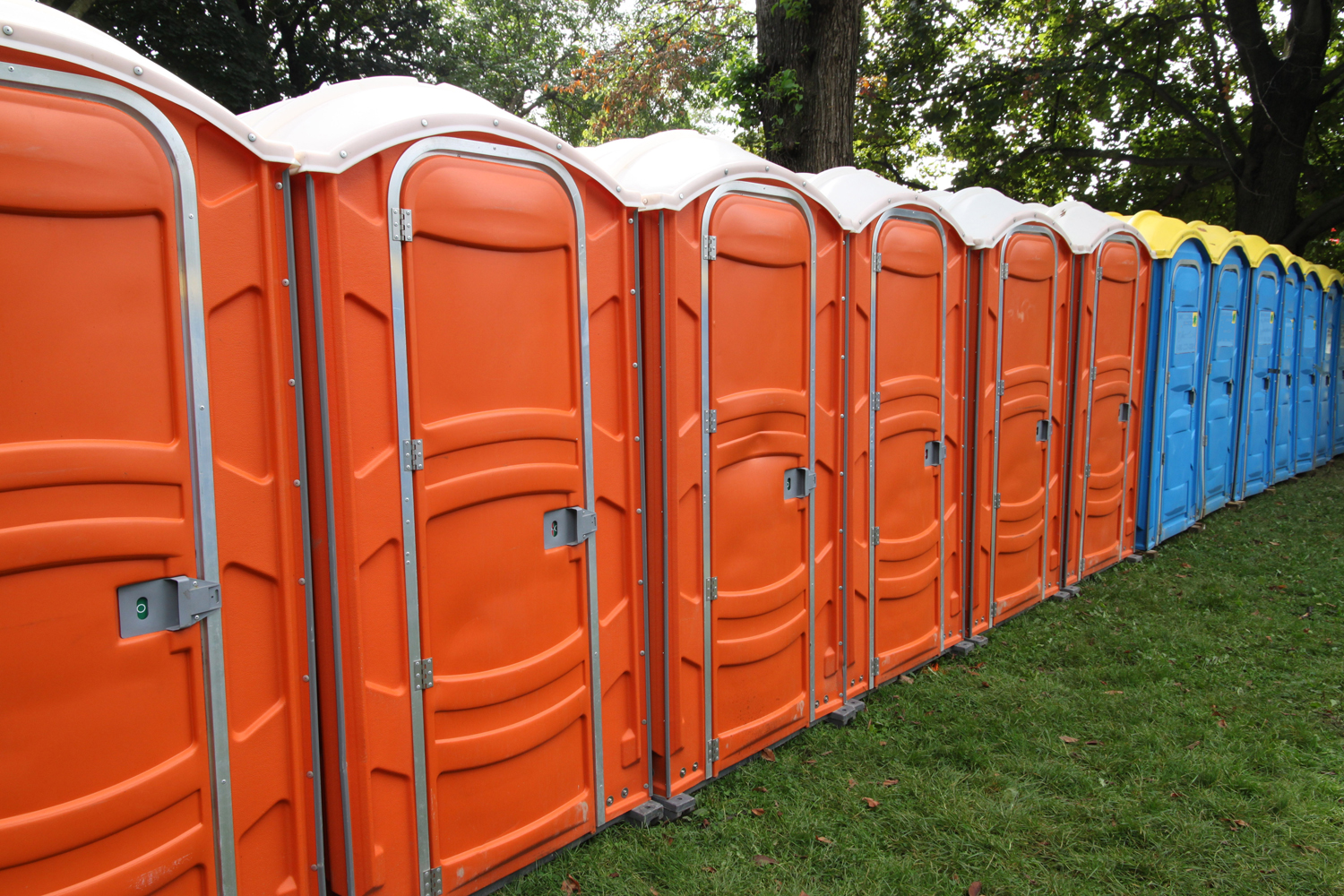
How Many Toilets Do You Need to Start?
April 20, 2018In a perfect world, you would always get paid on time and in full. In the real world, it doesn’t always happen. Not getting paid is a frustrating aspect of the portable sanitation business because once you’ve performed a service, you can’t take it back.
The best way to avoid a situation in which you are owed money is to not go there in the first place. Structure your billing to get paid upfront (at the “point of service”) for personal events such as weddings, parties and graduations. Your billing cycle for construction sites should be for the month ahead, not the month you’ve just serviced. But most large events and projects (such as those that are government sponsored) pay after the completion of services.
Why are they paying you late? In construction, it often happens that a project is having funding issues, and the slowed payment process is having a trickle-down effect on the vendors. The most “important” vendors (such as excavators and architects) get paid first, while portable restroom operators are lower on the list.
Once a debt is past due, there are steps you can take to get paid.
Contact the Non-Payer
Be polite. It may just be an oversight or a misplaced bill. If your customer admits that he or she or the company won’t be paying immediately, see if you can set up some terms – to pay within a certain time, or to pay in installments, for example. Follow up to make sure the terms are met. Many times, there are legitimate reasons for paying late, so it is important not to be too critical from the start. Continue to communicate. Perhaps the billing address changed or the AP contact changed. One option you have is to set up auto-payments or invoices to be emailed instead of mailed to speed up the AR/AP process.
Decide Whether to Stop Service
Consider your history with the customer. Have they regularly paid until this time? If so, you may want to give a show of good faith by continuing to service the unit, at least for a limited time. But if the invoice becomes large and the balance continues to build, try the “stop clean” method. Keep the units on-site, but let the job foreman know that you won’t clean or service them until they start paying.
Contact the Customer Before Removing the Unit
If you decide to remove the unit, be professional. Inform the customer that you will be removing the unit due to non-payment. Also, tell the customer that even though you are removing the unit, you still expect payment for past services. Make another offer to negotiate payment terms if you think there is still a realistic opportunity to do so.
Get the JohnTalk “ALL-ACCESS PASS” & become a member for FREE!
Benefits Include: Subscription to JohnTalk Digital & Print Newsletters • JohnTalk Vault In-Depth Content • Full Access to the JohnTalk Classifieds & Ask a PRO Forum
Let Other Operators Know
If you have a good working relationship with other PROs in your service area, let them know why they may be getting a call to bring units to the site. Consider filing a complaint with the Better Business Bureau at https://www.bbb.org/consumer-complaints/file-a-complaint/get-started.
Even after you’ve removed the unit, you can still try to collect.
Hire an Attorney to Send a Letter Asking for Payment
Adding a legal voice to your collection efforts may persuade your customer to act.
Take Your Case to Small-Claims Court
Small-claim court gives everyone the opportunity to bring a lawsuit without hiring an attorney, as long as the amount you are seeking is within the claims limit. It’s a fairly easy and inexpensive process. However, there’s no guarantee you’ll be able to collect should the judge decide in your favor.
Hire a Collection Agency
You won’t get the full amount because the agency takes a percentage of the amount it collects, usually 25-40%.
Take a Tax Write-Off
If you can’t collect, you may be able to take a tax deduction for your loss. Tax rules on deducting bad debts are in IRS Publication 535 at https://www.irs.gov/pub/irs-pdf/p535.pdf.
Looking to Take Your Portable Restroom Business to the NEXT LEVEL? Download our FREE Guide: “Your Guide to Operating A Portable Restroom Business.”
Thinking About GETTING INTO the Portable Restroom Industry? Download our FREE Guide: “Your Guide to Starting A Portable Restroom Business.”


